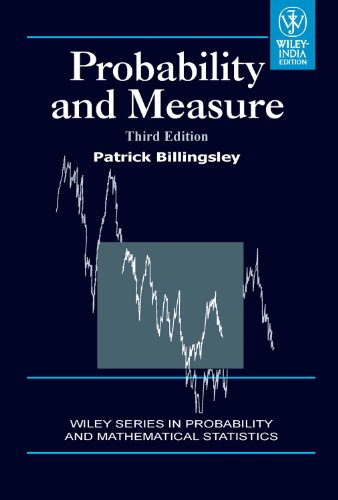=+(, ) and (#. #), and so on. Show that F is { on the first of
Question:
=+(, ) and (#. #), and so on. Show that F is { on the first of these intervals, ;
on the second, 2 on the third, and so on. Show by direct argument that F' = 0 except on a set of Lebesgue measure 0.
Fantastic news! We've Found the answer you've been seeking!
Step by Step Answer:
Related Book For 

Probability And Measure Wiley Series In Probability And Mathematical Statistics
ISBN: 9788126517718
3rd Edition
Authors: Patrick Billingsley
Question Posted:






